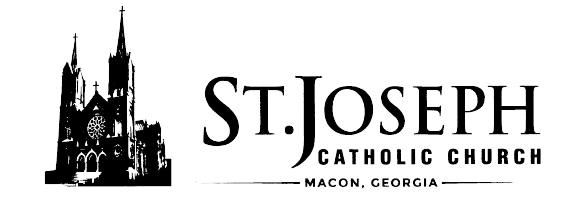Protecting God’s Children

St. Joseph Catholic Church and the Diocese of Savannah is committed to providing safe environments and fostering continuous improvement in every organization that sponsors activities and/or provides services to children and youth.
St. Joseph’s is also committed to helping promote dignity in life at all stages, from conception in a mother’s womb to one’s natural death. We believe that life is a gift from God and that He is the ultimate Creator of it and we seek to promote its dignity and importance at all stages. For crisis pregnancies, post abortion support, and natural family planning we endorse the St. Maximilian Kolbe Center for Life, which is located here in Macon at 833 Walnut St, Macon, GA 31201 Macon, GA 31201.
You may reach them at: (478) 257-4425 or at their website: Kolbe Center for Life
VIRTUS Training
VIRTUS training outlines appropriate behavior when dealing with children and is for the protection of both the adult volunteer/employee and children. All adults (age 18 or over) who work and/or volunteer in a Diocese of Savannah Church, School or Social Service Agency must meet Safe Environment requirement minimums.
How To Register for VIRTUS Training Sessions
You must pre-register online for VIRTUS training sessions. Click here to view online registration instructions. To register, visit www.virtus.org, click the “First Time Registrant” button on the left side of the webpage, and choose Savannah, GA (Diocese) from the pull-down menu. You’ll be able to view and select upcoming VIRTUS training sessions.
Protecting Our Youth:
Effective June 28, 2021, diocesan policy requires ALL employees and volunteers (age 18 and up) to be Safe Environment compliant. This means he/she must receive VIRTUS Protecting God’s Children for Adults training, undergo a background check, and read and acknowledge a Code of Conduct in advance of employment or volunteering in ministry. A five-year training refresher is required for all active volunteers/employees, and certain roles require monthly training bulletins. If you have any questions, please contact your parish/school Safe Environment Coordinator, or Joan Altmeyer, Director Safe Environment at 912-201-4074.
